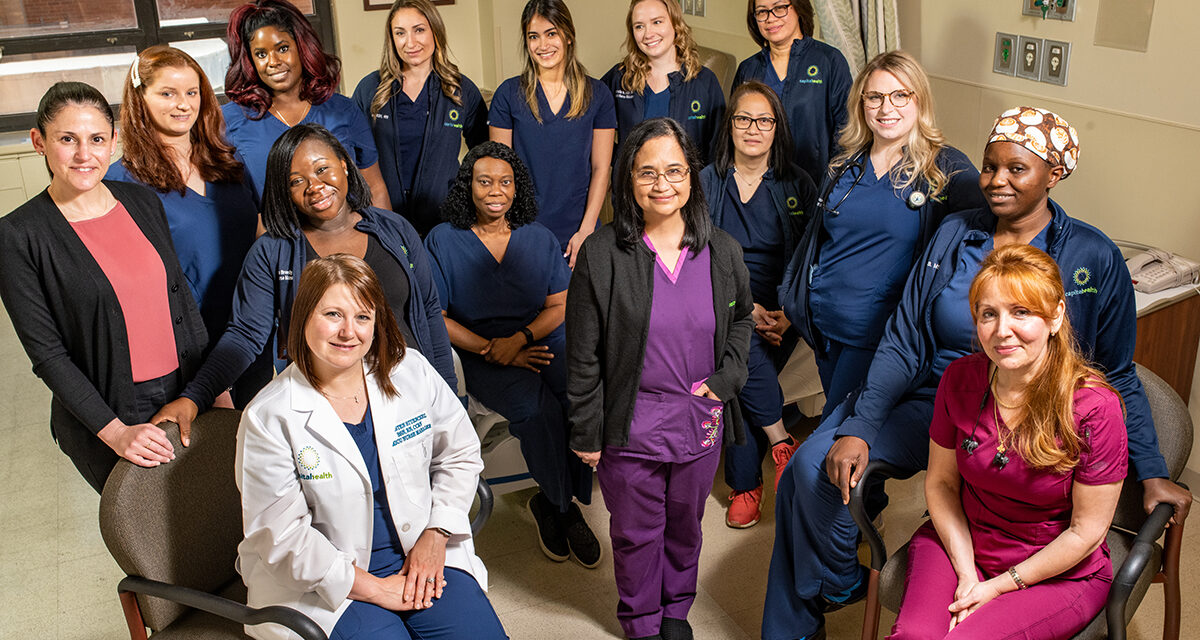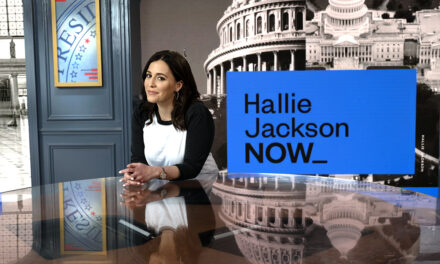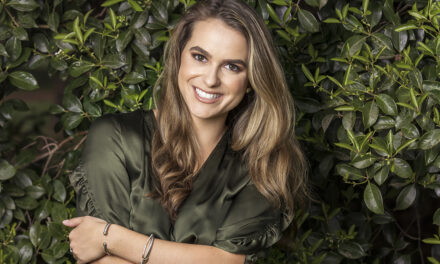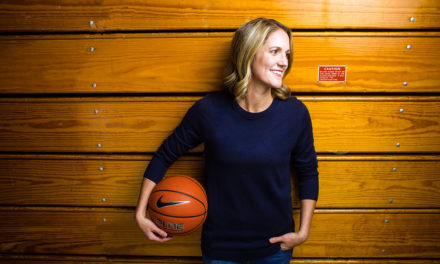In the battle against COVID-19, one of the groups that fought in the trenches was the unit at Capital Health Regional Medical Center known as 2F. As the pandemic spiraled out of control, these nurses donned their Tyvek suits, N95 masks, and face shields, and cared for the sickest patients, risking their own health. What they experienced changed them forever.
On March 28, as the pandemic began to ravage New York and New Jersey, Rahkia L. Stone, RN, received a call at home from Chief Nurse Officer Deb Mican that confirmed what she’d suspected. She was positive for COVID-19. The Capital Health nurse already felt awful. She was running a fever of 103, and she couldn’t get out of bed. Then, 2 days later, she learned that her beloved 75-year-old dad, who suffered from asthma and chronic lung problems, was admitted to the hospital for COVID—to the exact unit of Capital Health Regional in Trenton where Stone worked the night shift.
Over the next few weeks, while Stone battled COVID from bed, her father fought for his life at the hospital. “He talked to my mom, and he told her he loved her and he would fight. But then my dad started going into respiratory distress, and they had to intubate him,” Stone says. “We weren’t able to Facetime with him. COVID was so new, and people weren’t sure what to do. They didn’t know, at that point, if we could take iPads and tablets into the room. They did all they could for him.”
Knowing her coworkers were caring for her father while she herself remained so sick was a horribly helpless feeling. “The most I could do was research on my computer and call my mom, who was caring for my 7-year-old daughter. I was able to call my dad during the few days he was able to speak.”
On April 9, 2020, her father, William, died in the hospital, and Stone’s family was completely shattered. After she recovered from COVID, she took a little time away from work to collect herself. But the hospital staff was so strained and exhausted from the pandemic that she returned to Capital Health in early May. “Walking in there for the first time, knowing that my dad’s spirit was resting in that hospital, it was overwhelming. I started crying immediately. That first day was rough,” Stone recalls. “Seeing how bad the virus really was and what it was doing to people was terrible. But my coworkers were so loving from the minute I walked on the floor. We came together as a great team.”
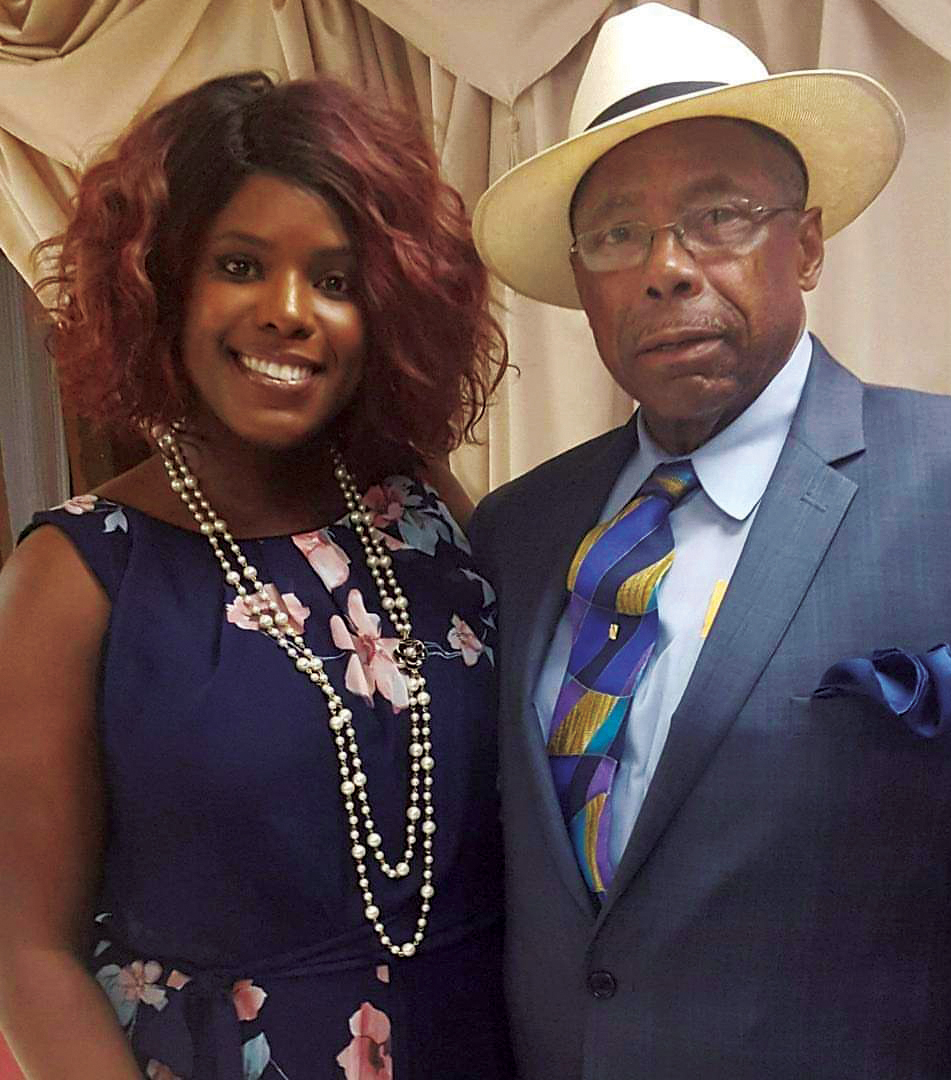
Now you look back and think, Wow, we did it by the grace of god and by being a team. I hope and pray COVID doesn’t come back again, but I think it made us better people and better nurses.
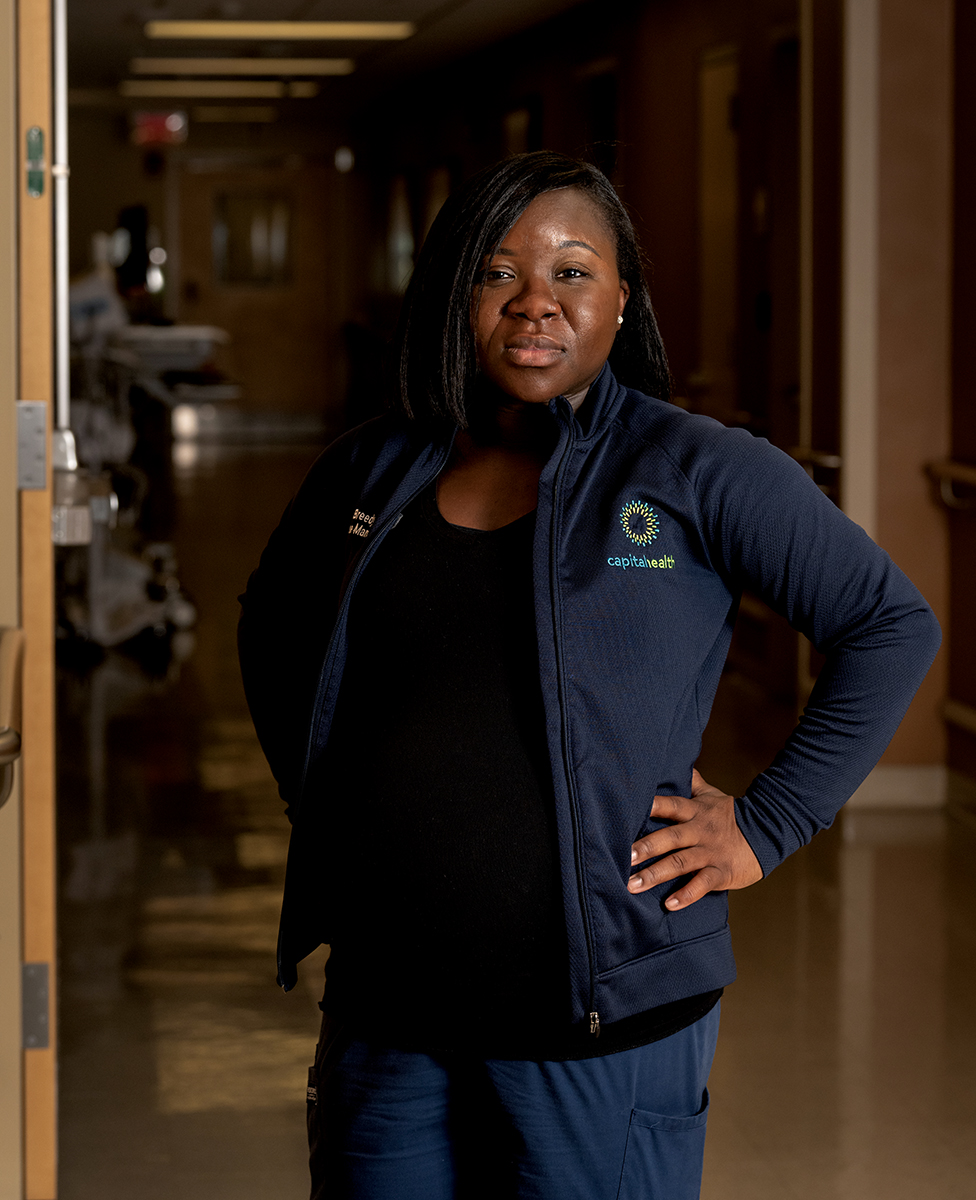
“I had to go home to mentally and emotionally prepare myself that we were at war. I am an emotional person, but I remember thinking, I’m going to have to put that aside so I can support these nurses.”
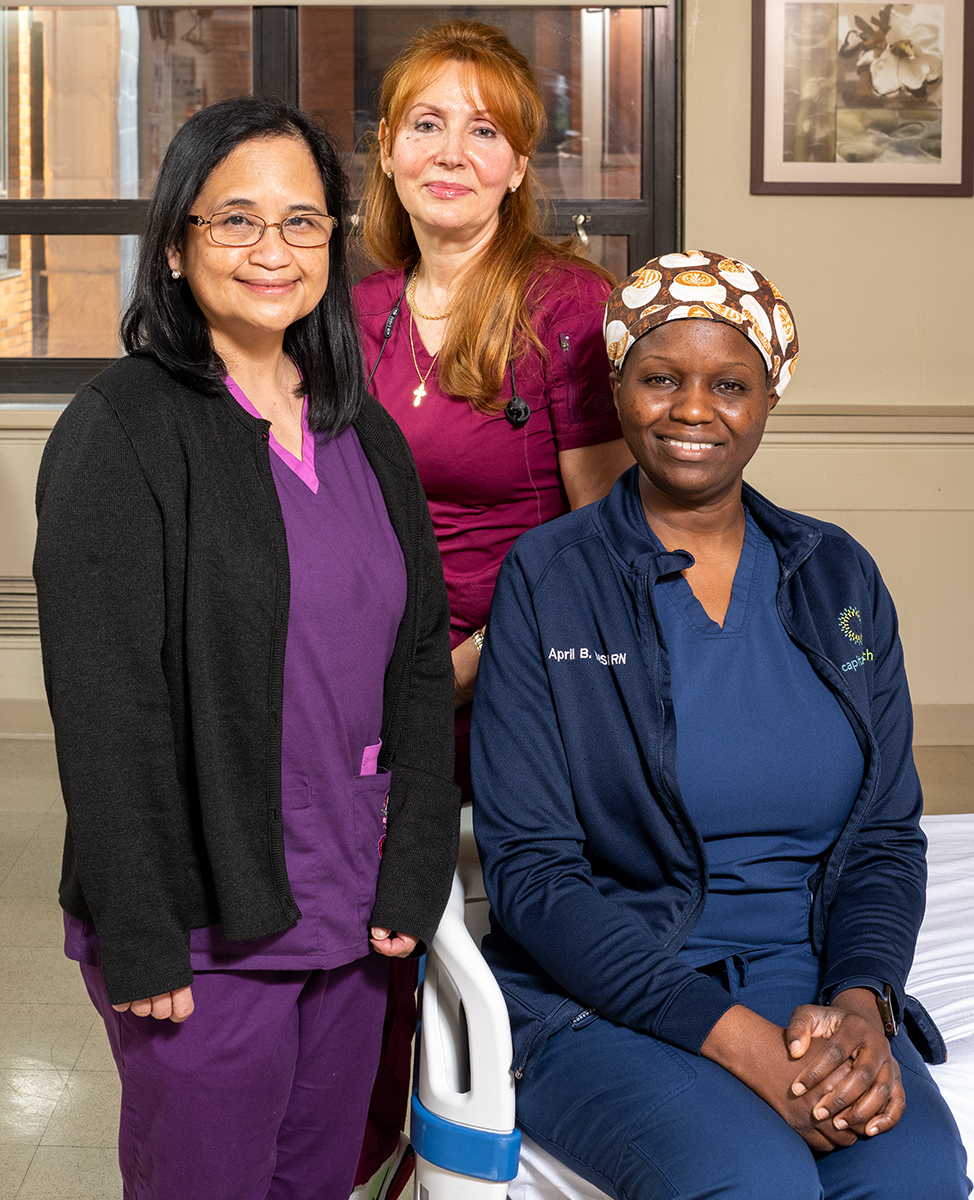
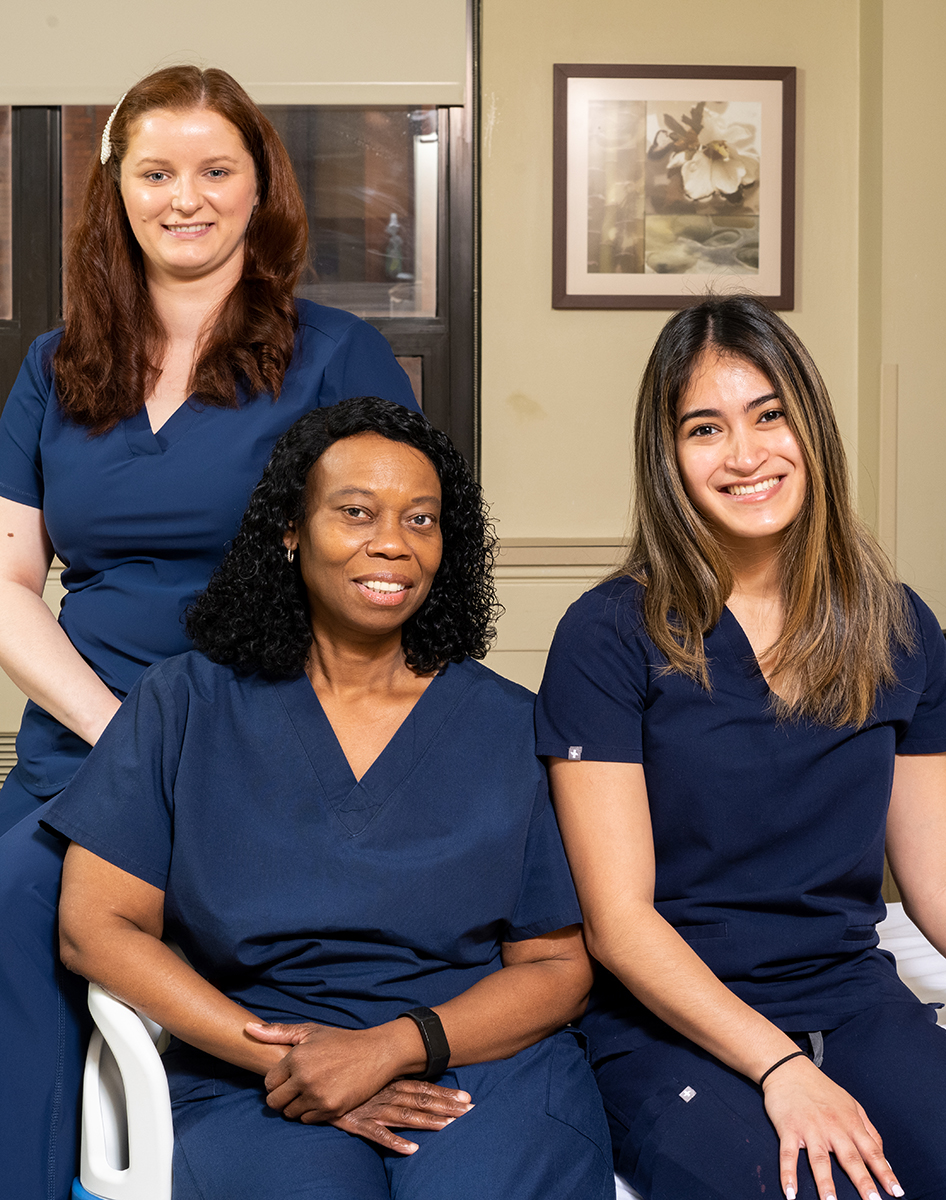
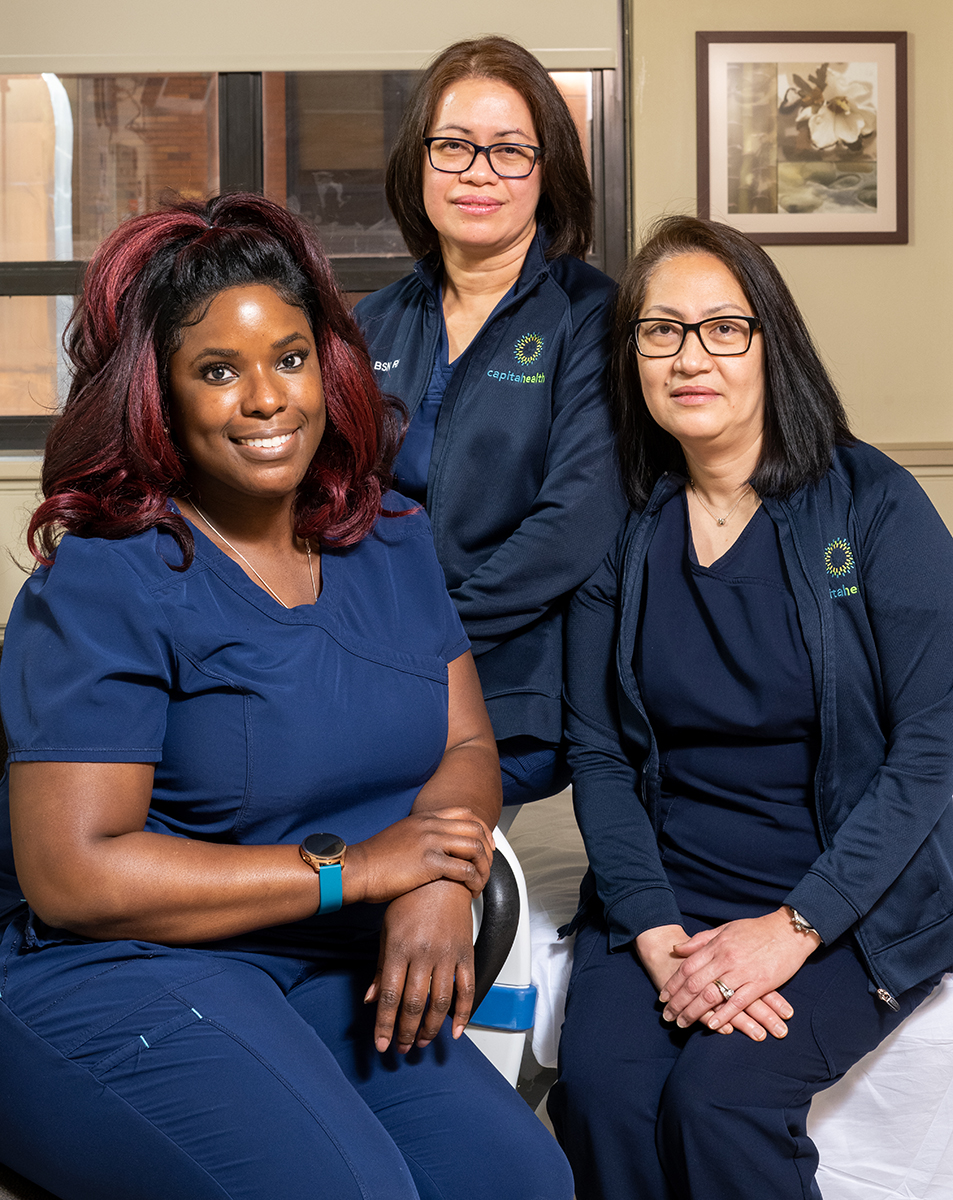
Life in the Trenches
The team Stone is part of is 2Front (2F), a unit of Capital Health in Trenton that con-fronted the worst of COVID throughout the pandemic. While it comprises experienced and talented doctors, nurses, aides, and administrators, COVID brought challenges they—like most of the medical world—had never seen. Patients were sicker, equipment was in shorter supply, and the stakes were higher.
After 6 months on the job, Melissa Chichilitti, MSN, RN, CCRN, was fairly new to her role as divisional director of Patient Care Services at Capital Health. When COVID took hold, she had to get her arms around the pandemic and the staff without fully understanding what she was up against. “Even though they were talking about it on the news, it didn’t seem like a huge deal because we weren’t seeing it here. The first COVID patient presented to Capital Health – Hopewell on March 22, and it went from zero to 100 in a short span of time.”
The health of the staff became a major concern. At the end of March, a month into her role as nurse manager of 2F, Nanayaa (Nana) Breedy, RN, was helping care for a patient who went into respiratory distress, then coughed in her face. Just days later, on April 1, Breedy tested positive for COVID. Contracting COVID-19 was an additional worry because her son, who suffers from sickle cell anemia, doesn’t have a spleen, so keeping him healthy is a constant focus.
While Breedy was home sick, the situation at the hospital worsened at an alarming rate. “I was home for about a week. I came back, and I remember thinking, What happened here? It was crazy. We had anywhere from two to four COVID patients a day through telemetry (monitoring the heart). We were intubating patients and sending people to the ICU,” she says. “Maybe we don’t want to admit it, but the truth is that everyone was so scared.”
Fear Factor
As Capital Health crept up to its highest census mark of more than 90 COVID patients in May 2020, the anguish and fatigue was palpable among patients and staff, Breedy says. As the staff members donned personal protective equipment (PPE) and did everything they could to care for patients and stay in touch with their families, they were quickly becoming emotionally drained. The dearth of information and the uncertainties around COVID-19 put a huge strain on frontline medical staff, especially in the early days of the pandemic, says Kristen Stuenckel, RN, nurse manager of Trauma Medical ICU & IMU. “These patients were a lot sicker and required a lot more resources, and we weren’t sure why. They had respiratory issues, and sometimes they had to go on a ventilator. Their blood counts were off, and organs were failing. And no two COVID patients were alike. There was no rhyme or reason initially, and that was both frightening and maddening.”
But it was the constant loss of life that was so traumatizing, Breedy says. “One day, we lost a patient, a woman in her 40s. She was so young, and she died. I had to go home to mentally and emotionally prepare myself that we were at war,” she says. “I am an emotional person, but I remember thinking, I’m going to have to put that aside so I can support these nurses. Meanwhile, many of our staff members were getting sick. It was really rough.” In addition to regular care, the fact that patients had to be isolated and that loved ones couldn’t be with them in the hospital became a major cause for concern, especially for the nurses of 2F, says Stuenckel. “All the sudden it kicked in that many of our patients were dying alone. I had one patient whose family couldn’t be with her, so I sat in the room with her until the end basically.”
During the height of the pandemic that spring, when PPE shortages became a significant worry, Capital Health centralized its resources, so the proper allocations could be made as needed. “With the limited supplies, we didn’t have enough for all the departments. That meant so much work fell on the primary nurse,” Breedy says. “They had to become everything, on the top of the stress of the pandemic.”
While nurses suddenly found themselves doing everything, from taking out the garbage to sitting with a patient while she took her last breath, they had to do it all wearing protective armor, which made each day even more taxing. “We had staff members who were catching COVID, so that meant they couldn’t even take the PPE off at the nurses’ stations,” Chichilitti says. “When you’re wearing your regular clothes, the protective Tyvek suits, and the masks and shields, during a 12-to-14-hour shift where you’re nonstop, it’s pretty exhausting, says Breedy, was pregnant for much of the pandemic.
The fear of bringing COVID home to their families became an underlying and constant source of stress that impacted just about everyone on the 80-person staff of 2F. “I went home after work and changed outside in the front lawn or in the garage,” Chichilitti says. “I remember my mom saying, ‘Don’t be superwoman at work; just come home to your kids.’”
Breedy got similar words of caution from her husband. “He said, ‘I know you love your patients, but please just think of us and the kids.’ But the thing, is I’m a nurse. When something must be done for someone in need, you do it. These are human beings. Their lives are on the line,” Breedy says. “You couldn’t help but think, What if this was your loved one? They don’t want to be here. They didn’t ask to get COVID.”
Outside the Bubble
After a month of quarantine turned into two and started to feel like it could stretch on for eternity, fatigue set in, and both COVID denial and refusal to wear masks became a frustrating reality that had a significant impact on the morale of frontline workers nationwide. Chichilitti says it was hard to square what they were seeing firsthand in the hospital with people’s behavior. “I remember driving home and being frustrated because the neighbors on the street were hanging out with each other. This was lockdown time, when we still knew very little,” she says. “I remember being so frustrated. It felt like there was some real ignorance to the severity of COVID.”
Breedy identified with messages she was hearing from other frontline health care workers who were begging people to heed the warnings and protect themselves and people around them. “Health care workers spoke out and begged people to wear masks, and the response from many was ‘Well, this is what you signed up for.’ No, this isn’t what we signed up for, especially when we’re telling you to socially distance and wear your masks, and then you come in and expect us to risk our lives.”
But they did risk their lives, and as hard as the pandemic has been on the entire staff, both Chichilitti and Breedy say the COVID experience made them a better team and prepared them to handle just about anything. “COVID made us understand the importance of communication. For me, now overseeing the managers, they know I will ask a lot, but I won’t stand next to them and ask them to do anything I wouldn’t do myself,” Chichilitti says. “Also, the simple act of expressing appreciation has been huge. Sometimes we forget to say thank you or good job. There was no way we were going to do any of this without each other.”
For Rahkia Stone, the pandemic changed the ways she sees her job, and it underscored the importance of going to work every day at Capital Health. “This gave me a different view of nursing and what it’s all about. For a while, I felt like I was living in the movie Outbreak. It was so surreal. At the height of it, I wondered, Will we make it out of this?” she says. “Now you look back and you think, Wow, we did it by the grace of God and by being a team. I hope and pray it doesn’t come back again, but I think it made us better people and better nurses.”

